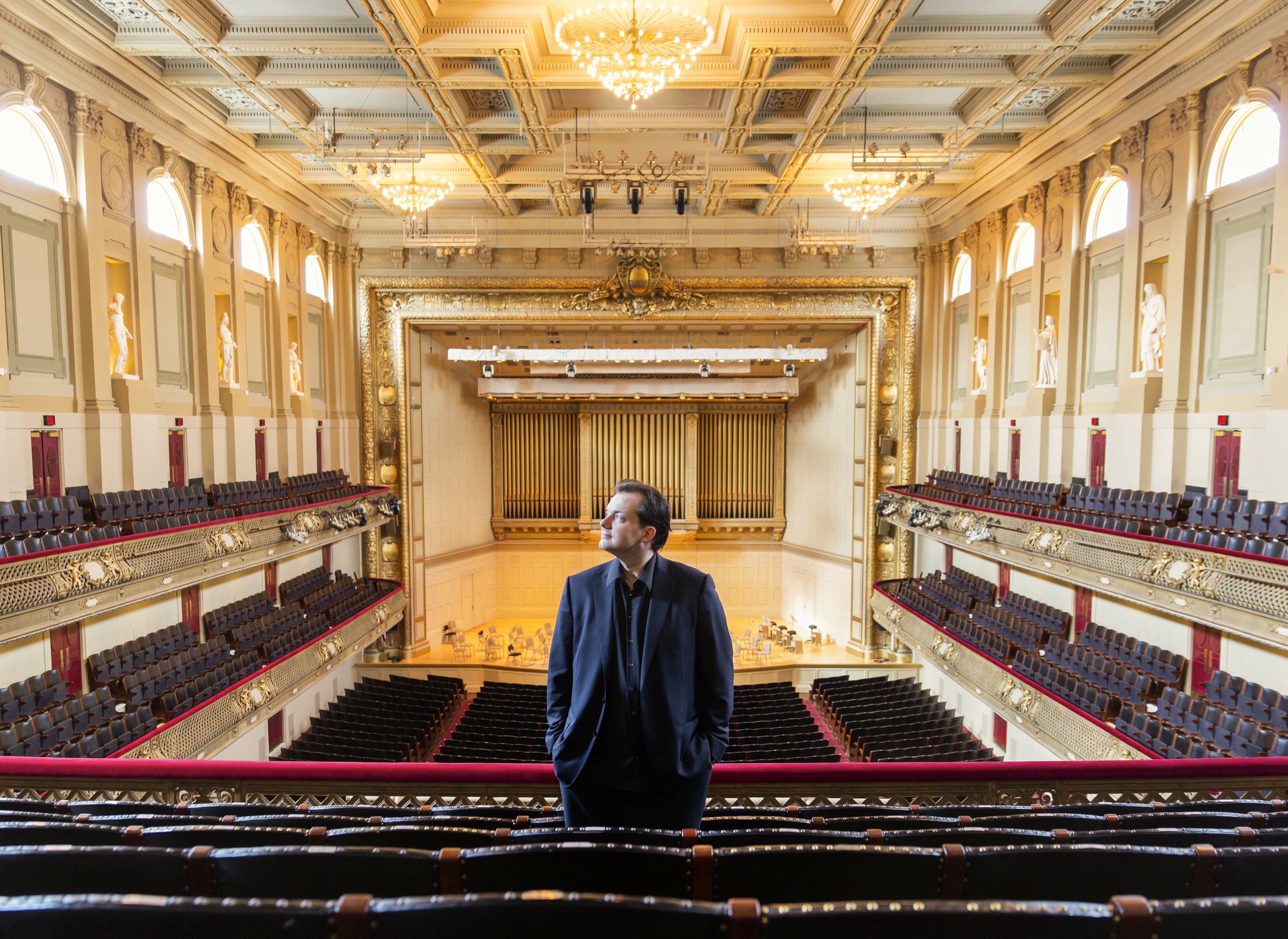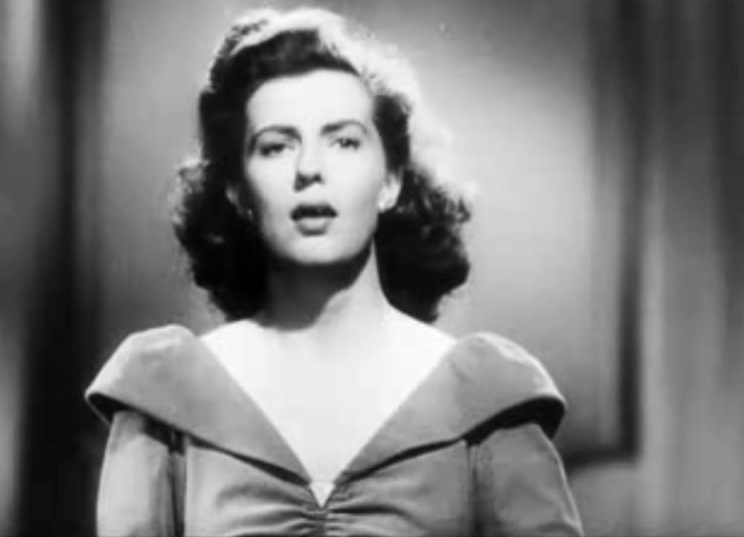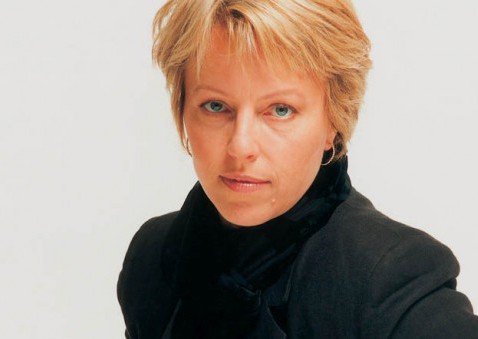
Category: Music-Video Fridays
YouTube can be a powerful force for increasing your cultural literacy in music.
Árstíðir: “Heyr himna smiður”
Árstíðir singing “Heyr himna smiður” in the train station of Wuppertal, Germany; September 15, 2013.
I find most “flashmob” music videos annoyingly contrived and manipulative, often bordering on the transparently insincere. The above impromptu handheld YouTube is a major exception to that rule—no fake perma-smiles, and no forced artificial interactions with passers-by.
Even better, the music is not “opera bits” being forced through a meat grinder; it’s a haunting 20th-century a-cappella tune and harmonization for a 13th-century Icelandic hymn text, “Hear, Smith of Heavens.”
While the audio quality is not the best (and the camera work would have benefited from a monopod); here, there is an organic authenticity that most flashmob music videos lack. The train station is a rather good stand-in for a cathedral. Proof again that state-of-the-art sound is sometimes the slave of jejune music, and that the slenderest knowledge of greater things means more.
The band Árstíðir’s name, in English, means “Seasons.” They deserve their five million YouTube views for this unforgettable moment. Well done, chaps!
Text, in translation, after the jump. Continue Reading →
Hila Plitmann: The Acrostic Song from “Final Alice” — Steampunk Classical

Soprano Hila Plitmann singing the final movement of David Del Tredici’s Final Alice with the Detroit Symphony, Leonard Slatkin conducting. (Note, “Del” is a given name, and not part of an Italian surname.)
Steampunk Classical.
What a concept!
In 1975-76, David Del Tredici wrote the first-ever (and perhaps only) “Steampunk” piece of classical orchestral music. (It is based upon Lewis Carroll’s Alice in Wonderland, after all.) The music is very accessible, and in general tonal and melodic, though there are episodes of dissonance and finally, chaos.
The final movement of Final Alice is the Acrostic Poem epilogue to one of the “Alice” books. The first letters of each line of the poem together spell out Alice Pleasance Liddell, the name of the girl Carroll based Alice on. Tredici instructs all the orchestral players who can, to hiss out like a steam engine the name of each of the first letters. That’s what the strange sounds you are hearing are. There’s also a rather obvious Elgar quote or homage, I think, too.
Video after the jump!
Delmoni & Martorella: Chopin/Milstein
Arturo Delmoni, accompanied by Steve Martorella, in the Auditorium of the Third Meeting House (1774-1775) of the First Baptist Church in America, playing Nathan Milstein‘s (one of Delmoni’s teachers) transcription of Chopin‘s C-sharp minor Nocturne. (The violin is muted.)
Rehearsal for Arturo Delmoni’s recital May 23, 2010. Steinway piano; violin J.B. Guadagnini (1780). The intro and outro chat audio are from the Canon camcorder, but the music is synched up from the 24/96 audio recording made with Pearl Microfon (Sweden) CC 22 cardioid condenser microphones (ORTF array) and a Sound Devices 702 CF recorder. Audio, video, and editing by John Marks.
There is a weed whacker at some distance outside, and it can be faintly heard. So be it. A special moment in time, frozen to a CF card.
# # #
Music for Holy Week (II)
Metropolitan Hilarion (Alfeyev): The Passion According To St. Matthew (YT)
Russian Orthodox Metropolitan Hilarion (Alfeyev) has an amazing life story. Formerly a violin and piano student, a soldier, and a monk; he is now one of the world’s leading Orthodox theologians. He studied at Pembroke College, Oxford (PhD), which I think is drolly amusing, in that the women’s college formerly associated with Brown University was called Pembroke.
According to Wiki, Metropolitan Hilarion has authored more than 600 publications.
Oh… he also writes music!
Music for Holy Week (I)
Bach: Saint Matthew Passion, BWV 244; Richter, Munich Bach Orchestra
DVD Deutsche Grammophon 000617709
Recorded 1971
Siegmund Nimsgern (Bass), Peter Schreier (Tenor), Helen Donath (Soprano), Ernst Gerold Schramm (Bass), Julia Hamari (Alto), Horst Laubenthal (Tenor), Walter Berry (Bass).
Julia Hamari‘s being so under the radar in the U.S. makes me think that there must be so many other truly exceptional singers who for one reason or another, we never hear about. So to rectify that, here is a video from 1971 when she was in her prime; and at least she has YouTube fame, more than 1 million views.
Patricia O’Callaghan: “Sad Boy”

(Please note, the song featured in the music video is not on the above album.)
Music-Video Friday: Patricia O’Callaghan: “Sad Boy”
Back in A.D. 2000, I resigned from a different audio and music magazine, and signed on with Stereophile. I wanted to do a bang-up job for my first column, and I also wanted it to be mostly about music.
I was lucky to snag a phone interview with an up-and-coming young Canadian crossover singer, Patricia O’Callaghan, about her very impressive breakthrough album Real Emotional Girl, CD cover above.
You can read that review and interview here. From the review part:
O’Callaghan, a handsome young Ontario native, has a voice that is strong, clear, and agile, combining a silvery-sweet upper range with a lower register just made for sly innuendo. Although her primary genre is cabaret, she’s not stuck in the late 1920s. Randy Newman, as well as Pearl Jam’s Eddy Vedder, are two of the songwriters represented on her new disc, Real Emotional Girl, along with retro-cabaret standby Kurt Weill and cabaret-nouveau mainstay Leonard Cohen.
Patricia O’Callaghan’s website is here.
Peter, Paul and Mary: “Early Morning Rain” (Lightfoot)
One must admit at the outset that the folk group Peter, Paul and Mary was, to a degree, a synthetic creation. Producer Albert Grossman discussed with Peter Yarrow his idea for “an updated version of The Weavers for the baby-boom generation… with the crossover appeal of the Kingston Trio.” [Ed: Yecch.]
Intrigued by a photograph, Yarrow approached Mary Travers. Travers in turn suggested her friend Noel Stookey, who was doing standup comedy when singing gigs were not to be had. Be that as it may, each of them was talented; and together, they made magic.
Among the songs they picked up was one by a Canadian former singing cowboy named Gordon Lightfoot, “Early Morning Rain.”
Nathaniel Rosen Plays Tchaikovsky’s “Rococo Variations”
One of the most popular works for cello and orchestra is universally known as Tchaikovsky’s Rococo Variations (Op. 33, of 1877). But what that name makes up for in concision, it somewhat lacks in clarity, in that it is the theme that is Rococo, and not the variations… . The formal name is usually rendered in English as Variations on a Rococo Theme, but the BSO’s broadcast announcer here calls it the Variations on a Graceful Tune.
Julie London – “Fly Me To The Moon” (1964)
The backstory to Julie London’s career is a little ways down the page, under Time for Love. The above video is from a 1964 Japanese television special. It’s of particular interest because many live films and videos of Julie London have substandard audio, which feeds into the canard that she had a weak voice. Here she sounds enviably punchy.
Bart Howard’s song of 1954, originally titled “In Other Words,” was his response to the request of a song publisher that he write less complicated songs. Howard idolized Cole Porter, but, the 1950s were not the 1920s; simpler (and briefer) was better. Frank Sinatra included “Fly Me to the Moon” on his 1964 album It Might as Well Be Swing, accompanied by Count Basie, which definitely put the song over the top as a “standard.” All told, “Fly Me to the Moon” has been covered on approximately 300 recordings.
# # #
WDR Big Band: “Just Friends”

(Note: The photo above is not from the music video.)
WDR Big Band: “Just Friends”
Here’s an exuberant big-band video (from the year 2000) showcasing the WDR Big Band in Bill Holman’s unique arrangement of the “Great American Songbook” number “Just Friends.”
Written by Klenner and Lewis in 1931, “Just Friends” is a pensive, poignant ballad about lovers who have drifted apart. They are now “Just Friends.” (Two friends… but one broken heart.)
“Just Friends” is doubtless most often remembered as the blistering opener to Charlie Parker With Strings. Parker’s astonishing introduction nests details within details—music as Mandelbrotian fractal. Famous vocal versions include those by Ella Fitzgerald, Chet Baker, and Tony Bennett.


